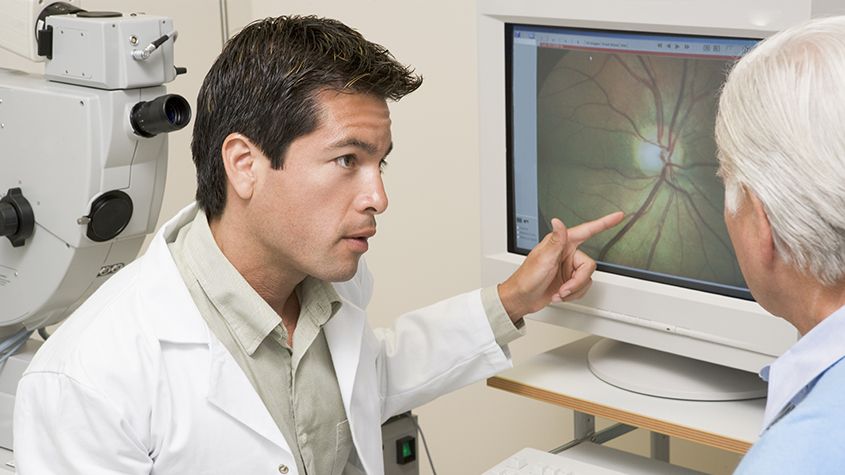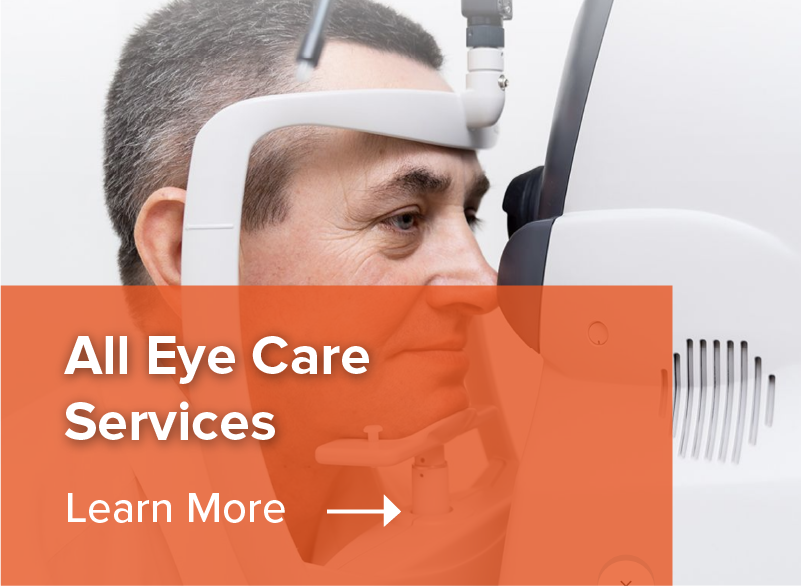At Med Center Eye, we provide comprehensive management for a wide range of ocular diseases, offering early detection, advanced diagnostic imaging, and personalized treatment plans to protect your long-term vision.
Many eye diseases develop gradually and may not cause noticeable symptoms at first—especially in adults over 40 or patients with conditions such as diabetes or high blood pressure. That’s why regular eye exams are essential, particularly if you have a family history of eye disease or other risk factors.
Our team diagnoses and manages conditions including glaucoma, cataracts, macular degeneration, and diabetic eye disease. Below is an overview of each, along with links to more detailed information.
Our team diagnoses and treats vision conditions including:
Glaucoma Treatment
If you’ve been diagnosed with glaucoma, you may already be familiar with common treatment options such as prescription eye drops, laser procedures, or surgery. Glaucoma is a group of diseases that damage the optic nerve and can lead to vision loss if not carefully monitored and treated.
How do we treat glaucoma? Our approach typically includes:
- Regular monitoring of eye pressure, optic nerve health, and visual field
- Prescription eye drops or medications to lower intraocular pressure
- Referral and co-management with surgeons when laser or surgical procedures are needed
Our goal is to help control eye pressure and protect your optic nerve over time. Learn more about our glaucoma treatment plans here.
Cataracts
If you’ve been diagnosed with cataracts, you may wonder if cataract surgery is right around the corner. Cataracts occur when the normally clear lens inside your eye becomes cloudy, causing blurry vision, glare, and difficulty seeing in low light.
What are your options if you have cataracts?
- Updated glasses prescriptions and improved lighting in early stages
- Monitoring cataract progression during regular exams
- Referral and co-management for cataract surgery when your daily activities are affected
We’ll help you understand when surgery is appropriate and guide you through the process. Learn more about cataract treatment here.
Macular Degeneration
Macular degeneration, commonly referred to as age-related macular degeneration (AMD), is a leading cause of vision loss in the developed world and affects millions of Americans. It damages the macula—the central part of the retina responsible for sharp, detailed vision used for reading and recognizing faces.
What eye care treatment options are available?
- Regular monitoring with dilated exams and imaging
- Nutritional and lifestyle recommendations to support retinal health
- Referral to retinal specialists for advanced treatments, especially in wet AMD
Early detection and consistent follow-up are key to preserving central vision. Learn more about macular degeneration treatment plans here.
Diabetic Related Eye Exams
You have almost certainly heard of diabetes, one of the most common chronic health conditions in the United States. Millions of adults live with diabetes or pre-diabetes, and this condition can have a significant impact on the eyes.
How does diabetes affect your eye health?
- Damage to blood vessels in the retina (diabetic retinopathy)
- Increased risk of diabetic macular edema
- Higher likelihood of developing glaucoma and cataracts
Regular dilated diabetic eye exams are critical for detecting changes before vision is affected. Visit our Diabetic Eye Exams page to learn more about how we monitor and manage diabetic eye disease.
Long-Term Vision Preservation
Our goal is to treat each patient with precision, attentiveness, and a long-term, vision-preservation approach. No matter your diagnosis, we’re here to help you understand your condition, answer your questions, and choose the best path forward.
If you’ve been diagnosed with an eye disease—or you’re at higher risk due to age, family history, or systemic health conditions—regular comprehensive eye exams and ocular disease management are some of the most important steps you can take to protect your sight.
Request an appointment to schedule an ocular disease evaluation at Med Center Eye.






